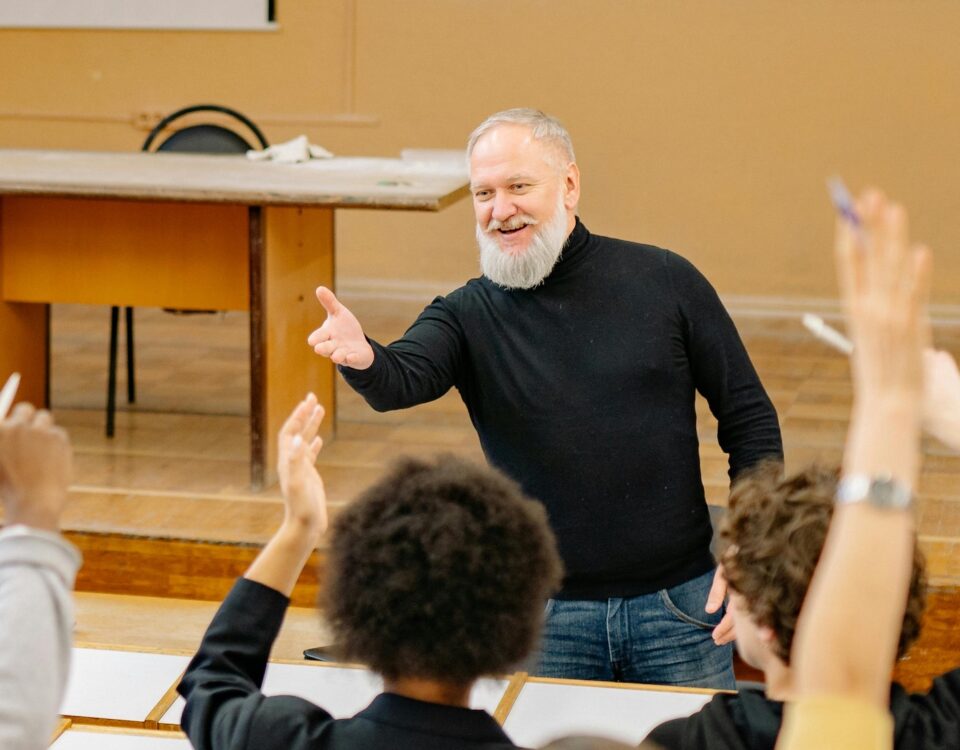
How to make a clear presentation

How to Become a Great Event Speaker
Meetings are a form of public speaking. In a meeting, you’re speaking, formally and informally, to a group. If you can contribute clearly, confidently and concisely, it can change the course of your career, help turn projects into successes, and shape a positive, productive team culture.
Meetings matter.
But so often, we leave them wishing we’d said more or added more value. If you’ve ever asked yourself, “How can I contribute more effectively in meetings?”, then you are certainly you’re not alone

Meetings are a form of public speaking. In a meeting, you’re speaking, formally and informally, to a group. If you can contribute clearly, confidently and concisely, it can change the course of your career, help turn projects into successes, and shape a positive, productive team culture.
Meetings matter.
But so often, we leave them wishing we’d said more or added more value. If you’ve ever asked yourself, “How can I contribute more effectively in meetings?”, then you are certainly you’re not alone

1. Adjust your mindset
If you ever find yourself thinking “I don’t have anything useful to say,” pause. You’ve been invited to the meeting for a reason. Your experience, perspective and questions are valid, and they are often more helpful than you realise.
We each bring something unique to the room. You might not be the most qualified or longest-serving expert, but your lived experience or fresh view could be exactly what’s needed to unlock ideas from others.
It’s common to underestimate your own insight, especially if you’re not the most senior or confident person there. But knowing how to contribute effectively in meetings starts with trusting that your voice matters.
2. Summarise what you hear
Not every contribution has to be brand new. Some of the most useful things said in meetings are the ones that pull different points together.
Try reflecting back with:
“Just to recap, it sounds like we’re saying…” or
“Can I check I’ve understood this right?”
Summarising helps the group focus. It shows you’re thinking critically and helps others feel heard. It’s a skill used by strong facilitators and team leaders. It signals calm confidence and clarity.

3. Take ownership of something within the meeting
If you’re not sure how to add value in a discussion, support the process instead. Offer to take responsibility for a small part of the meeting. It could be guiding a discussion point, keeping track of actions, or helping move things forward with well-timed questions.
This creates space for others to think and contribute more clearly, and shows you’re proactive and engaged. Often, once you step into that kind of role, it becomes easier to share your own views too.
This is a simple but highly effective tactic for anyone wanting to make more of an impact in meetings.

4. Invite others in
If you don’t have the answers, help someone else to share theirs.
Look around. Is there someone who’s been quiet but may have valuable input?Try: “I’d love to hear [Name]’s view on this,”
or: “[Name], you’ve got experience here. What’s your take?”
This shows awareness, generosity, and confidence. It also helps to ensure that important contributions aren’t lost just because someone is nervous, junior, or unsure whether to speak up. Knowing how to bring others in is a powerful way to lead, even if you do not have a formal title.
5. Bring something that sparks ideas
Sometimes the best way to contribute isn’t with a complete answer but instead with inspiration that helps others to find the solution.
Share a relevant article, a trend you’ve noticed, or a new way of looking at the issue. Even a well-timed question can prompt clearer thinking or shift a stuck conversation.
This kind of contribution signals that you’re engaged, curious, and thinking ahead. It also makes meetings more creative and collaborative.

How to get started with contributing more in meetings
None of these ideas are complicated but they do take practice. Choose one to try in your next meeting.
Notice what happens. How do you feel? How do others respond?
Every time you speak up, support someone else, or help the group move forward, you’re building your confidence and showing your value. The more you practise, the more natural it becomes and the more your voice will have an impact.
I look forward to hearing how you get on.
If you would like support with your public speaking in meetings or on stage, then please contact me here.


